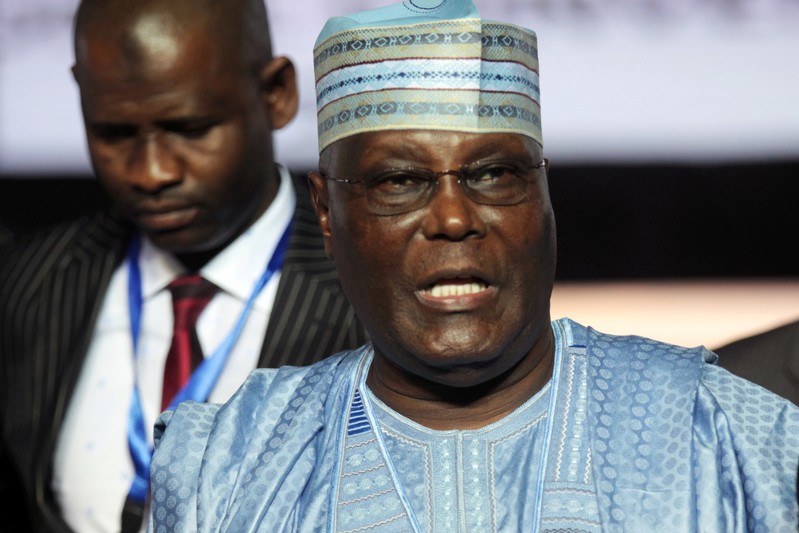
ABUJA (Reuters) – Nigeria’s main opposition candidate Atiku Abubakar said on Monday he’ll almost certainly boost oil sector investment, cut costly fuel subsidies and twice the height and width of the economy by 2025 if he wins next year’s presidential election.
The businessman and former second in command portrayed himself being a champion within the private sector when he released his manifesto and set out his wants to stop incumbent Muhammadu Buhari securing a second term in February.
There are few reliable opinion polls in Nigeria, Africa’s largest oil producer. But Abubakar is seen as a considerable challenger to Buhari, a previous military leader who have suffered a run of defections, overseen a stumbling economy and struggled to contain militant violence during the northeast.
The opposition People’s Democratic Party (PDP) candidate is, like Buhari, a northerner – but analysts say his business background, in port logistics among other ventures, has won him supporters one of many southern business elite.
“We’re proactive in attracting investment and supporting the 50 million medium and small scale enterprises across Nigeria designed for doubling the size of our GDP to $900 billion by 2025,” Abubakar said inside of a video message.
“These investments will create at the least 2.5 million jobs annually and lift at the very least 50 million people from poverty during the first couple of years,” he added.
In the manifesto, Abubakar said he would privatize government-owned crude refineries, issue new licenses for greenfield investments in refineries and consider re-introducing bidding rounds for marginal fields and oil blocks.
The plan, the manifesto said, can make sure Nigeria refined half its current crude production of roughly Two million barrels daily by 2020.
OIL
Nigeria remains largely reliant on sales of oil, that make up roughly two-thirds of government revenues. But it really refines almost none from the crude, instead exporting what it really produces and paying to import refined products – a substantial drain on the country’s wealth.
Abubakar said he would eliminate subsidies on imported fuel and allow market determine the amount, a potentially risky strategy in the country where even rumors of price hikes have triggered violence.
The candidate also vowed to shell out $90 billion in infrastructure annually on the next five years, and up a $20 billion infrastructure debt fund with private backing to invest in projects.
He said although sign the African Continental Free Trade Agreement. Buhari has currently kept out with the continent-wide pact, saying he wishes to perform wider consultations.
Abubakar’s manifesto re-iterated his will partially privatize state oil firm Nigerian National Petroleum Corporation (NNPC).
Buhari’s government has attemptedto keep tight control of exchange rates because naira weakened industry by storm global oil price declines.
Abubakar’s manifesto said the exchange rate controls were a difficulty. Nonetheless it stopped wanting saying whether however end them.
Buhari – who in 2015 was crowned first opposition candidate to oust a president over the ballot box – has promised to maintain his campaign against corruption.
(Reporting by Alexis Akwagyiram in Lagos and Paul Carsten in Abuja; Editing by John Stonestreet and Andrew Heavens)


1 comment